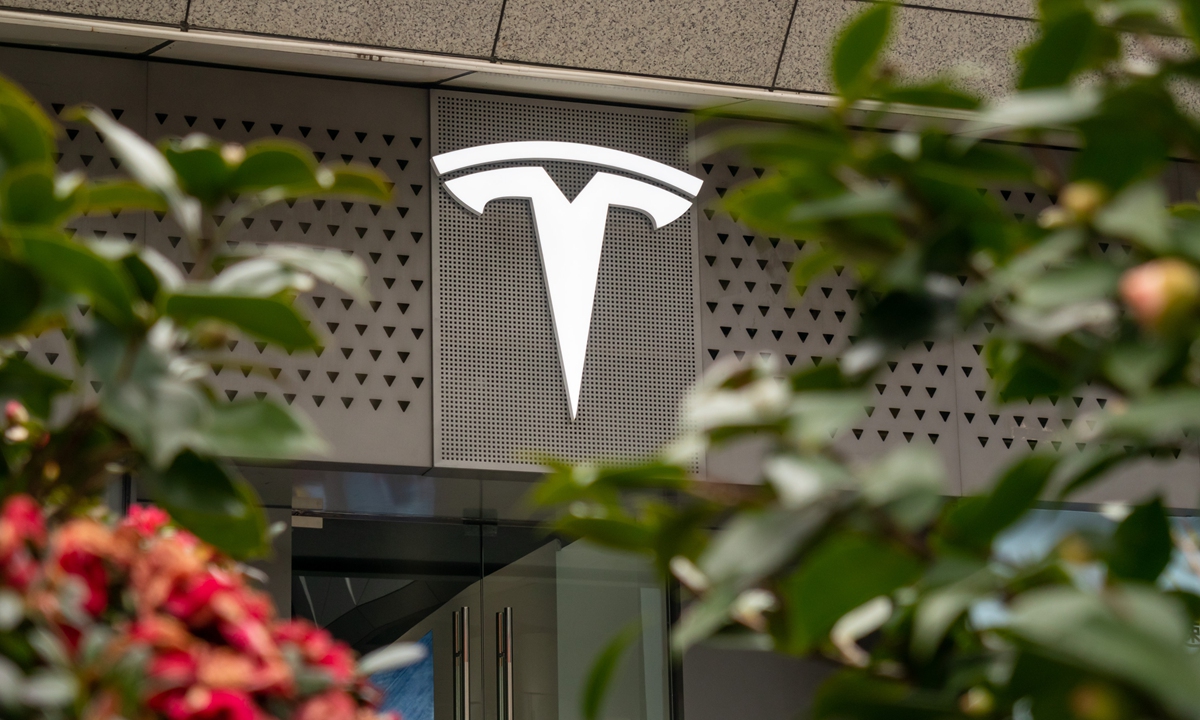Chinese social media influencer apologizes to Tesla for making allegations infringing company reputation

Tesla experience center in Shanghai, China Photo: VCG
Chinese social media influencer Cai Jia issued a public apology to Tesla on Tuesday, following a reputational infringement lawsuit that concluded with a court-ordered apology and financial compensation by Cai.
Published in the Legal Daily, Cai admitted to erroneously alleging brake failures in Tesla vehicles, acknowledging the “substantial damage caused to Tesla’s reputation” by his allegations on social media.
Cai, who previously boasted to have over 5.54 million followers on Douyin, the Chinese version of TikTok, had posted several video clips questioning Tesla's car quality.
Cai once cited an unnamed source within Tesla’s supply chain alleging unscrupulous practices by Tesla, such as coercing parts suppliers to accept lower prices and stringent payment terms, which he claimed could compromise Tesla vehicle quality. Additionally, Cai accused Tesla's inspection officials and some suppliers of engaging in corrupt practices, soliciting money. Following those allegations, Tesla filed a court lawsuit against him in 2022.
After losing the lawsuit in March 2023, Cai was ordered by court to publicly apologize to Tesla on multiple social media platforms, and also to compensate Tesla 100,000 yuan ($13,745) for reputational infringement.
Tesla highlighted Cai’s refusal to comply in a Weibo post dated June 6, 2023, which led to the court’s legal enforcement. Cai’s social media accounts were then blocked in August 2023 after he refused to implement court orders.
Despite the resolution of the lawsuit and the suspension of his accounts, Cai's apology sparked widespread online discussion across Chinese social media. Some comments on the Chinese news site Guancha.cn even voiced support for Cai, praising his forthrightness and cautioning against blindly following brands.
But many others mocked him, claiming his vitriol to be sensationalized, aimed at winning more followers and gaining a fatter profit.



